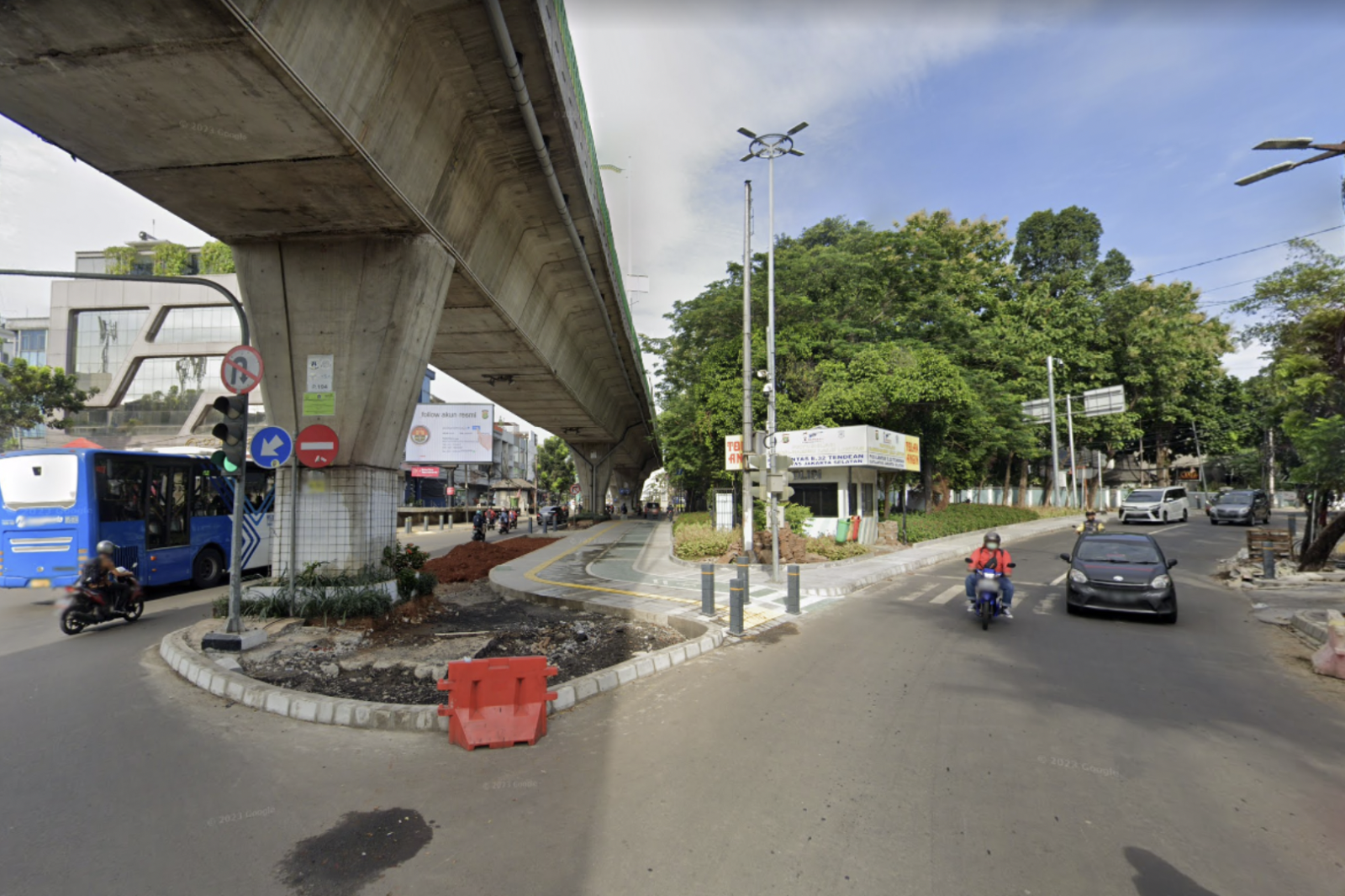The Yin and Yang of Road Changes in Jakarta
Figure 2 The condition of Kendal Tunnel- Before (Source: Google Maps, 2020)
By Ulfi Puarada
Last month, the 7th UN Global Road Safety Week took the theme #RethinkMobility.
Talking about #RethinkMobility means shifting the mindset on how we design transport systems. It involves reevaluating how people and goods move within and between cities. Most people would use this chance to aim to create a more integrated, accessible, and user-centric transportation ecosystem. While others may not.
Cities around the world, like Curitiba, Amsterdam, Singapore, and Seoul, have realized how important it is to develop sustainable transportation systems as part of their efforts to tackle climate change. Like these cities, Jakarta, the capital city of Indonesia has recognized the importance of creating a more sustainable transport system and has been implementing various initiatives to address significant challenges in terms of traffic congestion and air pollution.
Figure 2 The condition of Kendal Tunnel- After (Source: Google Maps, 2020)
The opposite of the Road Diet
There is an unspoken law that says Jakarta, as the model city for Indonesian cities, cannot make a mistake when it comes to urban development.
While the Kendal Tunnel/Terowongan Kendal has implemented the idea of a road diet, the opposite happened at the Santa Intersection/ Simpang Santa in the southern part of Jakarta. The intersection situated along Wolter Monginsidi Street and Santa Market is surrounded by three bus stops. To support road widening, the portion of the area that was formerly a sidewalk was demolished in April 2023.
This contradicts the city's Transport Master Plan's statement that the development of pedestrian facilities should be given priority in order to enhance intermodal connectivity and accessibility. The Government stated that the approach taken in the Santa intersection was a solution to release the traffic. It is worth noting that road expansion is sometimes necessary in certain situations. In this area, however, the congestion continues to occur despite the expansion.
Figure 3 The condition of Santa Intersection- Before
The voice of youth creates a different
The day after the sidewalk was closed, some road users complained on social media about what they perceived as the loss of pedestrian access. Bike2Work, KOPEKA, Road Safety Association, and ITDP Indonesia are just a few of the communities and activists who have spoken out against this design change. Even though it is not one of the TOD Areas, it does not mean that the priority for pedestrians and cyclists is simply abandoned.
Due to ongoing complaints, the government engaged in discussions with community representatives, which led to the establishment of a pelican crossing on the asphalt-covered pavement area. Although the design could not be changed back to the original, this issue demonstrates how the voices and actions of the youth involved can have an impact on transport planning.
Figure 4 The condition of Santa Intersection- After (Source: twitter @TMCPoldaMetro )
The implementation of two different options for road design and functionality inevitably leads to distinct effects. Santa Intersection, with its focus on prioritizing private vehicle users, presents one approach, while the Kendal Tunnel favors pedestrians and cyclists. The interpretation of #RethinkMobility becomes pivotal in shaping the outcomes of the reevaluation, potentially generating positive or negative implications for specific road users. It also emphasises that Youth participation has an influence on the decision-making.
The question is for whom do we design roads?
About Ulfi:
Ulfi Puarada is a Junior Transport Analyst with a master’s degree in Advanced Engineering (Transport) based in Indonesia. Ulfi is currently a coordinator of Women on The Move Network, a platform for female experts in transport. She has an interest in promoting active and public transport and providing a better transport system for women and children especially.




